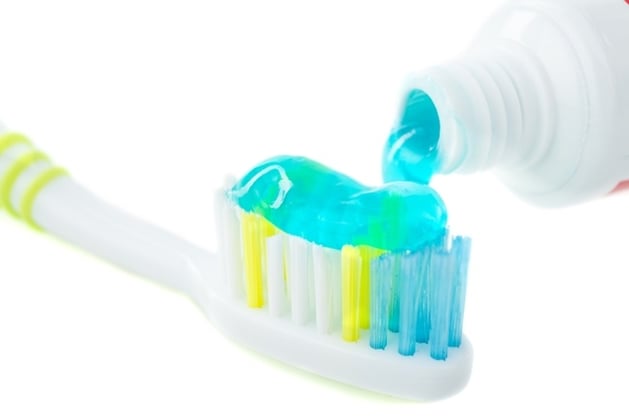
There tends to be a lot of confusion about what constitutes normal signs of aging, and dental health is no exception. Contrary to popular belief, it is not "normal" for seniors to lose their teeth. Although tooth loss and denture use is common among older adults, that doesn't mean it's a natural process of aging. When seniors lose their teeth, it's usually a sign of poor dental health.
Additionally, dental issues can contribute to other problems with seniors' overall well-being. In fact, gum disease has been linked to diabetes, heart disease, respiratory disease, osteoporosis and certain cancers. The risk for some of these ailments increases with age, due to lifelong habits and body changes. Therefore, it's important for all age groups, especially the elderly, to take care of their smile.
However, this can be difficult when all the aisles at your local drug store are lined with hundreds of different toothpaste options. What is the best toothpaste for you? Here are four elements in toothpaste seniors should look for when making a purchase:
Anti-gingivitis
Gum disease is a common dental ailment, and though it's frequently experienced by seniors, it's not a result of aging. Rather, gum disease is caused by a buildup of bacteria and plaque. Gums are part of what secures your teeth in your mouth, so for seniors, this disease could be the beginning of tooth loss. Gingivitis is the first stage of gum disease, and with a good toothpaste for gingivitis, seniors can reverse its progress.
Signs of gingivitis include swollen, soft and puffy gums, receding gum line, bleeding when flossing or brushing, bad breath and a change in the color of the gums from pink to red. If you suspect you have gingivitis, help combat the progress of gum disease with a good toothpaste that has anti-gingivitis qualities. You'll want to catch this problem before you reach the last, irreversible stage of gum disease: Periodontitis.
"A pearly white smile can be a gateway to confidence."
Whitening
A pearly white smile can be a gateway to confidence and solid oral health. Age-related discoloration is common in seniors, so they should opt for a whitening toothpaste. The enamel, the outer protective layer of your teeth, gets thinner over time. The more this layer fades, the more exposed the dentin becomes. Dentin is naturally yellow in color, hence the discoloration. Not only does it show more, but the dentin gets more discolored with time, too. Plus, certain habits like drinking coffee or smoking can cause yellowing teeth as well. Though whitening shouldn't be the only consideration when choosing toothpaste for seniors, it could help them attain a more brilliant smile and boost their confidence levels.
Fluoride
Using fluoride toothpaste is key to combating cavities. Cavities are typically associated with kids who are keen to dive into sugary sweets and who routinely forget to brush their teeth before bed. However, cavities can affect seniors, too. Plaque, a sticky film of bacteria that forms on the gums and teeth throughout the day, can cause bad breath, gum disease and tooth decay for any age group. Fluoride not only helps remove plaque, but it also can aid in rebuilding enamel.

Having a healthy smile is an important part of aging.
Anti-dry mouth
There are special dry mouth toothpastes available, and they can be especially helpful for seniors. Many medications can cause decreased saliva production, which can lead to discomfort, bad breath, trouble swallowing and mouth sores. Saliva is also important for balancing the natural bacteria in your mouth to prevent tooth decay. Since seniors often take a variety of medications, toothpaste with moisturizing components may be beneficial.
Don't let aging myths take over your oral care plan. Choosing the right toothpaste for your needs can feel overwhelming when you’re in the store, but you can simplify the process by carefully reading the packaging. Don't forget to brush twice a day, floss once and regularly visit your dentist. And, if you’re avoiding the dentist due to costly dental bills, consider a Dental Solutions card that can save you 20% to 50% on your dental care.

